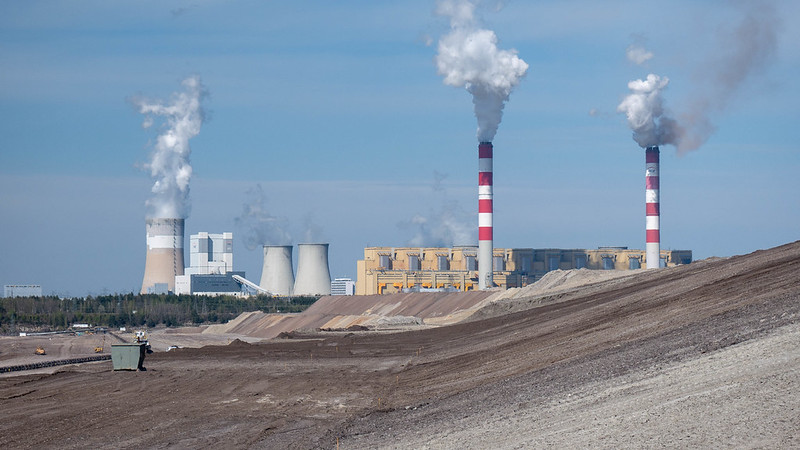The Polish government is planning to nationalise dozens of coal plants and use public money to keep them running to allow state-owned energy companies to invest in greener alternatives.
The proposal by the ministry of state assets is part of negotiations between the government and energy companies to restructure the ailing coal sector.
Under the plan, 70 lignite coal units, which generated more than half of Poland’s electricity in 2020, will be purchased by the state and handed over to a single state-run National Energy Security Agency (NABE).
In a statement, the ministry said this would enable a “gradual and long-term transformation of the power sector” by replacing coal with low-carbon and green sources. In 2020, Poland’s share of electricity generated from coal dropped below 70% for the first time.
The merger of coal assets into a single entity is designed to give three state-owned energy companies – PGE, Enea and Tauron – fiscal space to develop clean energy sources.
Jacek Sasin, Poland’s deputy prime minister and minister of state assets, said banks were becoming reluctant to finance companies with carbon-intensive assets in their portfolio. He added pollution allowances required by the European Union to burn coal had become more expensive than the coal itself.
Sasin said the EU’s climate policy and goal to cut emissions at least 55% by 2030, compared with 1990, had created “a huge challenge for the Polish power sector”.
Poland’s council of ministers are expected to discuss the proposal before a broad social and inter-ministerial consultation.
Aleksandra Gawlikowska-Fyk, an analyst at Forum Energii, told Climate Home News that the proposal was “a step in the right direction” if it enables energy companies to invest in clean energy.
But the plan lacks critical details about the need for a coal phase-out, she said, leaving out all climate considerations.
Pawel Czyżak, head of energy and climate research at the Warsaw-based Instrat Foundation, told Climate Home that without a coal exit date for energy generation, taxpayers’ money could be used to “run these plants forever”, a prospect he described as “worrying”.
“The government is completely neglecting the climate angle. Its energy strategy and plans are still incompatible with the EU’s climate policy,” he said.
The proposal would require approval from the European Commission under the union’s state aid rules.
Czyżak said this was a critical moment for Brussels to force Warsaw to agree a coal exit date. An outright refusal of the plan could be used by Poland to blame the EU for rising electricity prices, he warned.
Biden’s moment: What to expect from Thursday’s climate leaders summit
At the same time, the Polish government is seeking approval from the Commission for providing state aid to its coal mining sector, with an agreement between the government and mining unions tipped to be finalised this week.
The government has previously agreed to continue to subsidise coal production until 2049 – an exit date campaigners and experts say is far too late.
“The government will be fighting on two fronts and I believe it will be impossible to get approval for both from the Commission. It will be no nice Sunday talk,” Robert Tomaszewski, a senior energy analyst at Warsaw-based think tank Polityka Insight, told Climate Home.
Tomaszewski said Brussels was unlikely to green light Poland’s restructuring proposal for coal plants without a date to shut down old and inefficient plants.
Pakistan explores debt-for-nature scheme to accelerate its 10 billion tree tsunami
Under current rules, old coal plants in Poland are eligible for support under an energy capacity agreement approved by the European Commission. But the arrangement is coming to an end on 1 July 2025, when most existing plants will loose critical funding.
Without it, old and inefficient plants are anticipated to run at high losses. Around half of Poland’s coal fleet were operating with negative margins in 2020.
“Inevitably, NABE will have to close them down,” Tomaszewski said – a sudden shut down which will force investments in alternative energy sources to plug a looming capacity gap in the power system.
In February, the government approved a plan that aims to reduce coal’s share in the power mix to 56% by 2030 through deployment of offshore wind and onshore wind and solar energy.
Recent analysis by the Instrat Foundation found that the share of coal-generated electricity in Poland could decrease from the current 70% to just 13% in 2030, without compromising the country’s energy security.
Under this scenario, 76% of the electricity demand could be generated by renewable energy sources by 2030 and burning coal in power plants would end in 2035.
